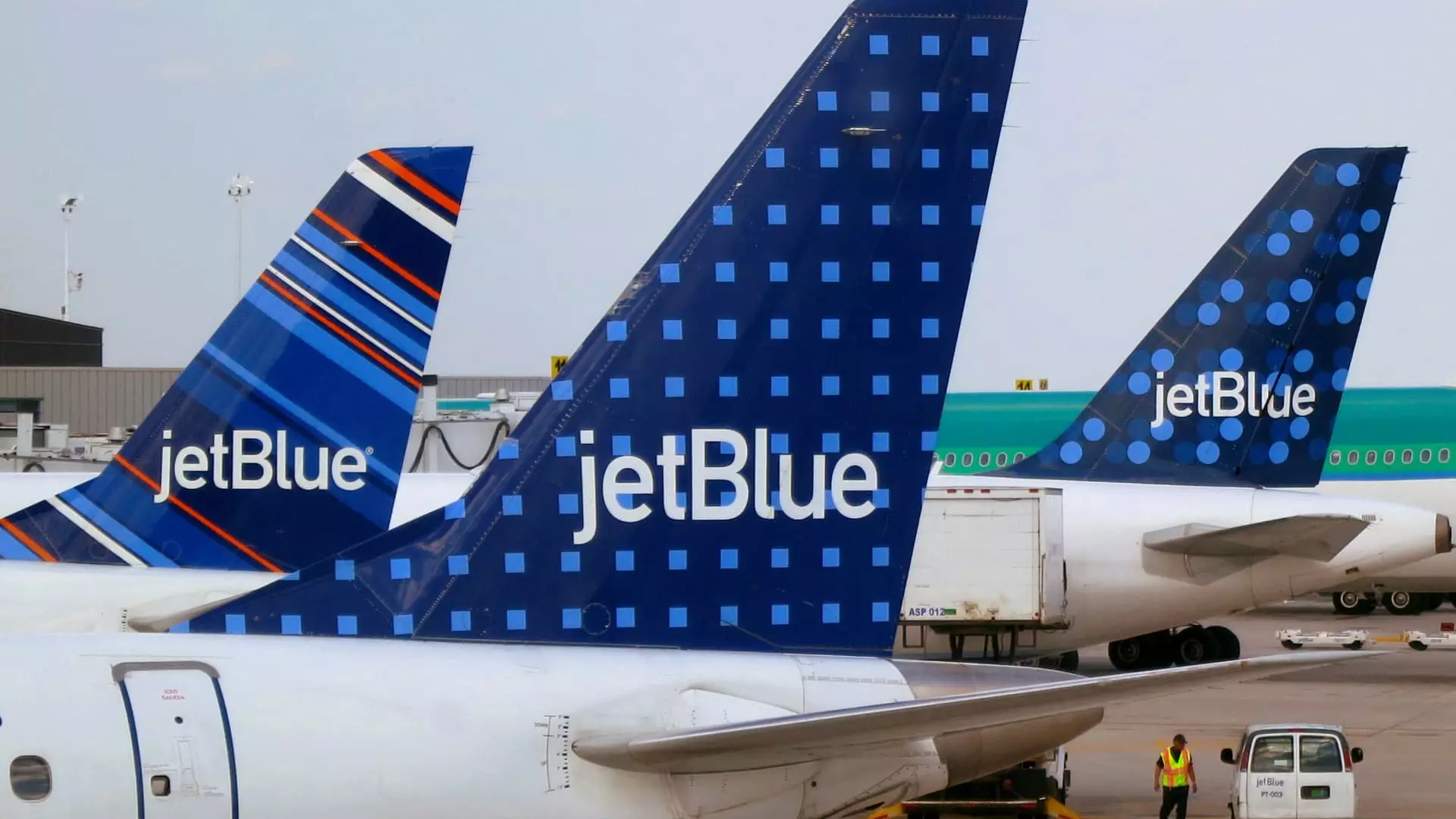In a landmark decision, the Department of Transportation (DOT) has imposed a $2 million penalty on JetBlue Airways for its “chronically delayed flights,” marking the first time such a fine has been levied. This unprecedented step signals a shift in how regulatory bodies are addressing tardiness in the airline industry, setting a cautionary precedent for other carriers. The fine comes amid an era where customer patience with travel disruptions is wearing thin, and the expectation for airlines to deliver consistent and timely service is at an all-time high.
According to the DOT’s findings, JetBlue’s operational shortcomings were particularly evident on four specific routes. From June 2022 to November 2023, these routes suffered from significant operational inefficiencies that led to delays: flights from JetBlue’s home base at John F. Kennedy International Airport to Raleigh-Durham International Airport, Fort Lauderdale to Orlando, and a couple of connections stretching between JFK and Fort Lauderdale. The DOT identified that over 145 delays were recorded across these routes, signaling a critical failure in scheduling and operational execution.
The implications of such delays are not merely statistical; they have real-world consequences, impacting passengers’ travel plans and expectations. Delays of this nature can tarnish the reputations of airlines and lead to diminished customer loyalty as travelers seek alternatives to avoid the stress of uncertainty.
Transportation Secretary Pete Buttigieg has come forward emphasizing the need for the airline industry to adhere to more realistic flight scheduling. The statement underscored that the DOT will accept no excuses for systemic failures, forcing airlines to be responsible for the reliability of their services. By firmly addressing JetBlue’s irresponsible scheduling practices, the government is more than just meting out discipline; it is laying down a challenge to the entire airline sector to elevate their operational standards.
The DOT has specified its criteria for what constitutes a chronically delayed flight. If a flight operates more than 10 times a month and regularly arrives over 30 minutes late, then it falls under this category. This strict guideline adds weight to the fine and signifies a commitment to holding airlines accountable for passenger inconvenience.
In response to the hefty penalty, JetBlue has attempted to deflect some of the responsibility toward systemic issues within air traffic control. The airline cited the need for improved staffing and modernization of the air traffic system, aligning its narrative with sentiments expressed by other major airlines like Delta and United. JetBlue’s defense hinges on the assertion that while they have accepted accountability for the delays in question, they believe the government also bears a significant responsibility in ensuring that air traffic issues do not continue to disrupt airline timeliness.
This proposed collaboration between airline operators and regulatory bodies speaks to a larger theme facing the aviation industry today: the necessity for modernization and resilience in an evolving logistical landscape.
Interestingly, JetBlue has demonstrated some improvement in its operational performance, ranking ninth among major U.S. airlines in on-time arrivals from January to September 2024, with a rate of 71.3%. This shows a commendable rise from last year’s painfully low rate of 64.9%. However, such statistics coincide with the context of the recent fine, which casts a shadow on their improved performance.
The ongoing scrutiny of airline operations and on-time performance by the DOT indicates that the agency is now in a position to enforce stricter regulations across the board. Investigations into other airlines for similarly unrealistic flight schedules could usher in a new regulatory environment that prioritizes punctuality and passenger satisfaction.
As the airline industry grapples with the challenges of reliability, customer expectations, and regulatory scrutiny, the $2 million fine imposed on JetBlue Airways serves as both a warning and an awakening. It illustrates the increasing intensity of governmental oversight in an industry fraught with complexities. The broader implications of this case could lead to meaningful changes that benefit travelers, providing hope for more reliable flight schedules and a commitment to passenger care throughout the aviation sector.

